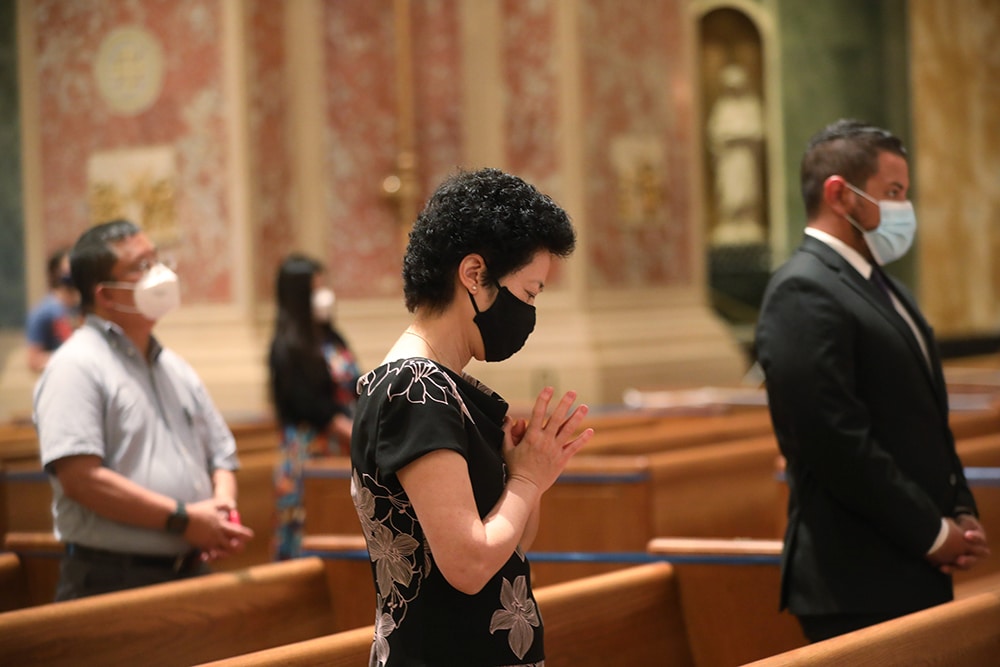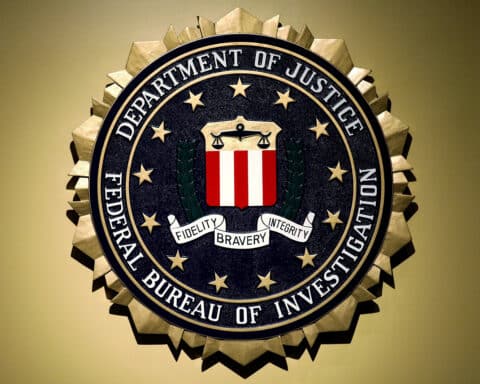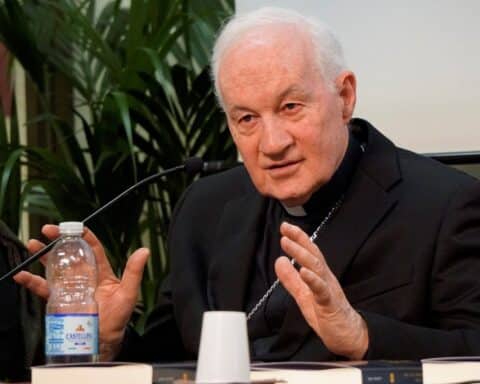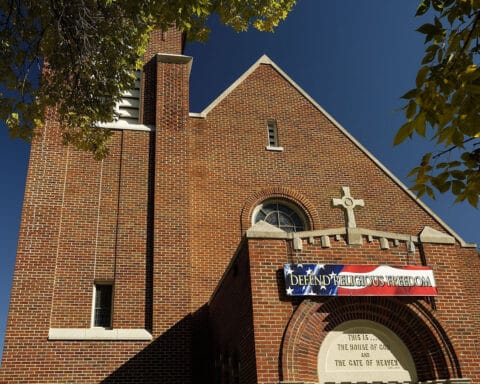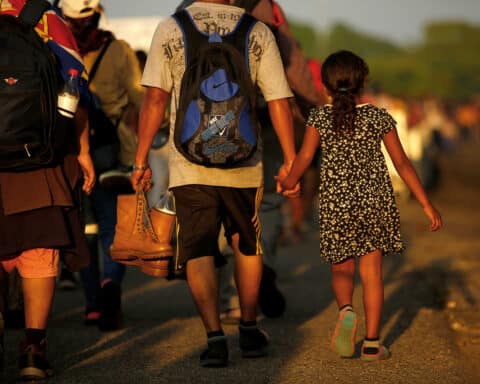There has been little reason to rejoice in 2020, the majority of which has been spent under the dark cloud of pandemic. Yet rejoicing is what many Catholic leaders were doing on the eve of Thanksgiving, when the Supreme Court granted the Diocese of Brooklyn, New York, and two Orthodox Jewish synagogues relief from an executive order by New York Gov. Andrew Cuomo that had severely restricted attendance at religious services as a way to stop the spread of the coronavirus.
“I have said from the beginning the restrictions imposed by Governor Cuomo were an overreach that did not take into account the size of our churches or the safety protocols that have kept parishioners safe,” said Bishop Nicholas DiMarzio of Brooklyn, who filed the lawsuit Oct. 8. “Catholics in Brooklyn and Queens have adhered to all COVID-19 safety protocols to attend Mass and receive the Eucharist. Our churches have not been the cause of any outbreaks. We have taken our legal battle this far because we should be considered essential, for what could be more essential than safely gathering in prayer in a time of pandemic.”
In a tweet, Cardinal Timothy M. Dolan of New York said, “While we have been and will continue to adhere to all safety protocols to protect our communities, it is also important to protect that fundamental Constitutional right, religious liberty.”
In the spring, this editorial board called the religious liberty argument used by some who were advocating for the return of public Masses after the bishops had voluntarily made the decision to cancel public worship a “straw man” that pitted bishops against the laity. We stand by that statement: When religious authorities have the final say, religious liberty isn’t threatened. But two important differences exist now where the religious liberty argument is concerned. First, because we know more about the virus and how it spreads, Church leaders are reasonably certain that wearing masks, social distancing at Mass and following other important protocols result in a safe worship environment. And second, as in the case of Cuomo and the Diocese of Brooklyn, the state has chosen to treat houses of worship differently than secular businesses and organizations that operate in the same geographic space.
In a 5-4 opinion, the justices for the majority called out the disparity. “In a red zone, while a synagogue or church may not admit more than 10 persons, businesses categorized as ‘essential’ may admit as many people as they wish,” they wrote. “And the list of ‘essential’ businesses includes things such as acupuncture facilities, campgrounds, garages, as well as many whose services are not limited to those that can be regarded as essential, such as all plants manufacturing chemicals and microelectronics and all transportation facilities.”
“The disparate treatment is even more striking in an orange zone,” the opinion stated. “While attendance at houses of worship is limited to 25 persons, even nonessential businesses may decide for themselves how many persons to admit.”
In the name of public health, the state may opt to restrict religious gatherings. But this ruling shows that it must not restrict them in ways that do not apply to comparable secular businesses or organizations. This is what it means to have a constitutional right to freedom of religion, and we are grateful to live in a country that upholds this right.
As the pandemic worsens, it must also be said that just because the Church has a right to do something doesn’t mean it ought to do it. Should it get to the point where religious gatherings are clearly causing spread of the disease, bishops need to be willing to consider taking the step they took in the spring and voluntarily cancel Masses. Right now, the measures that have helped parishes successfully gather, especially mask-wearing and social distancing, must continue to be followed stringently. Dioceses should practice transparency if a priest contracts COVID-19, and his congregation should be informed as quickly as possible. The Church is called even to go beyond best practices — as many parishes are — to ensure that it in no way contributes to the spread of the disease. In the name of charity, we can and should be leaders in this regard. “Faith, hope and love remain, these three,” St. Paul writes. “And the greatest of these is love.”
This Advent, we are joyful and grateful for the opportunity to worship freely and without fear in this country. As we do so, may we continue to act responsibly and with charity as our guide.
Our Sunday Visitor Editorial Board: Gretchen R. Crowe, Scott P. Richert, Scott Warden, York Young

